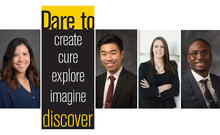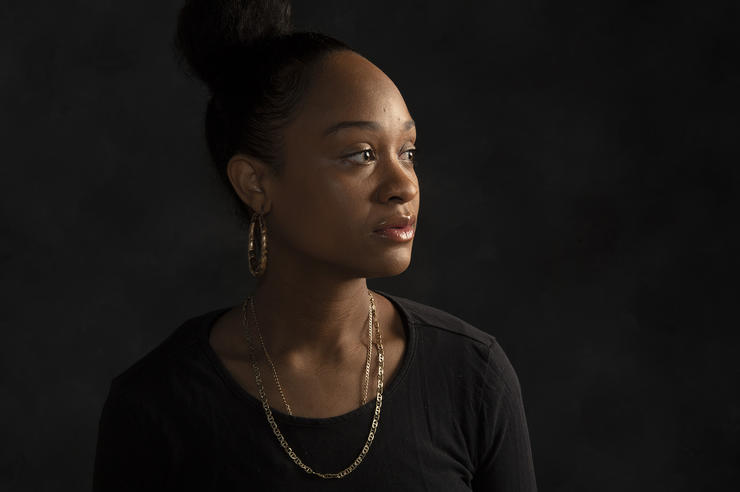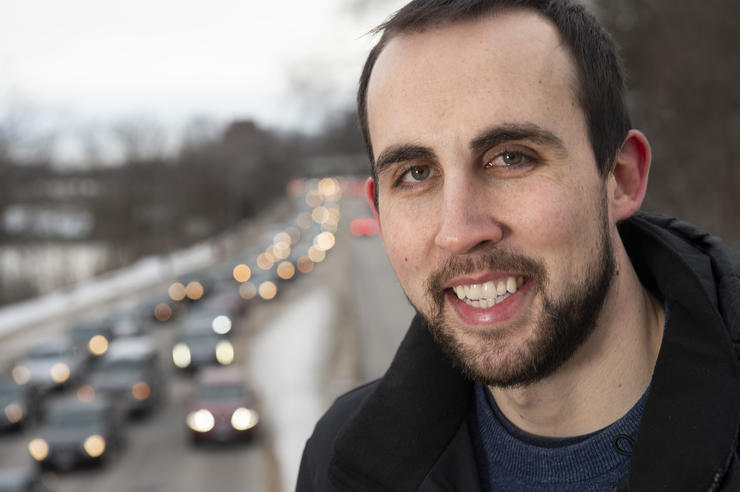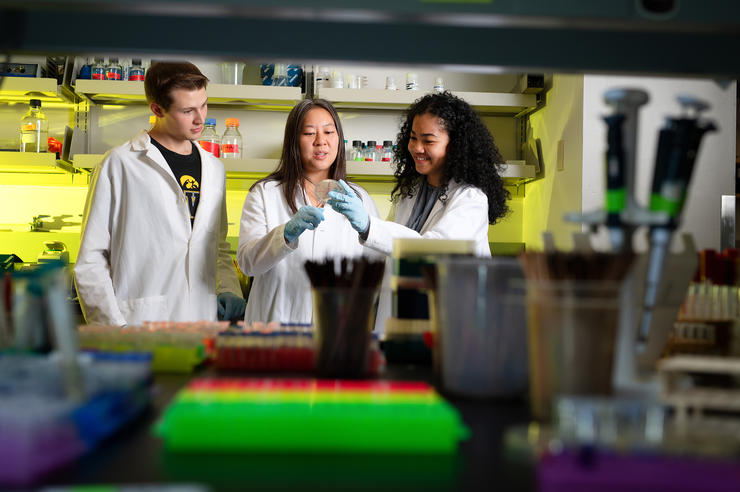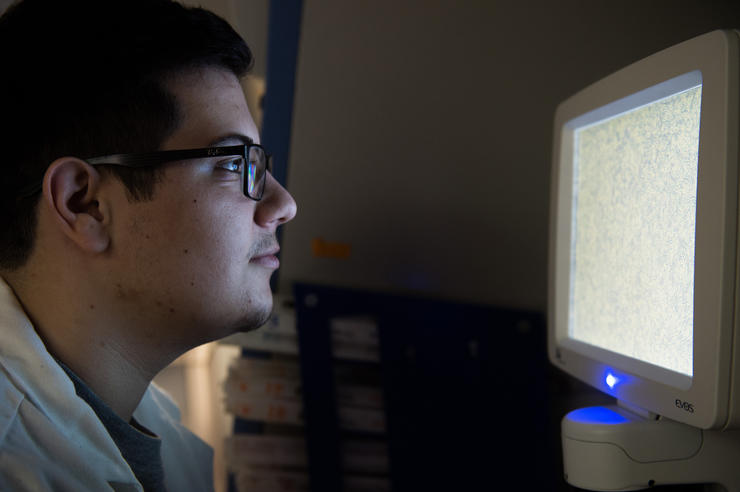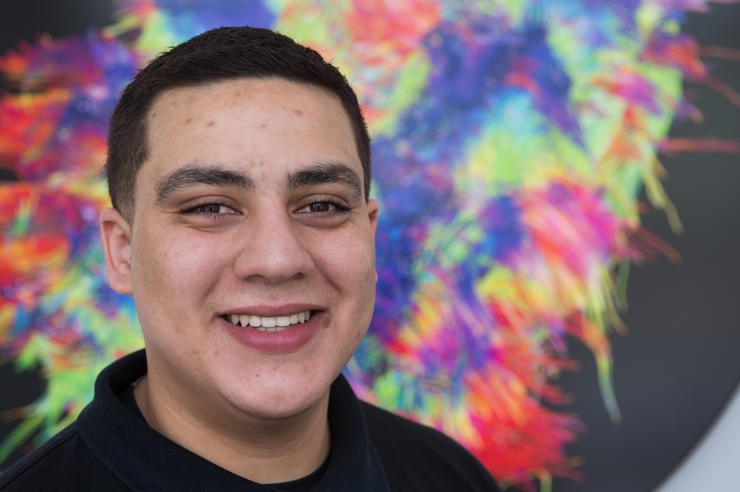Doctor? Scientist? Researcher? Cochran eyes all of the above
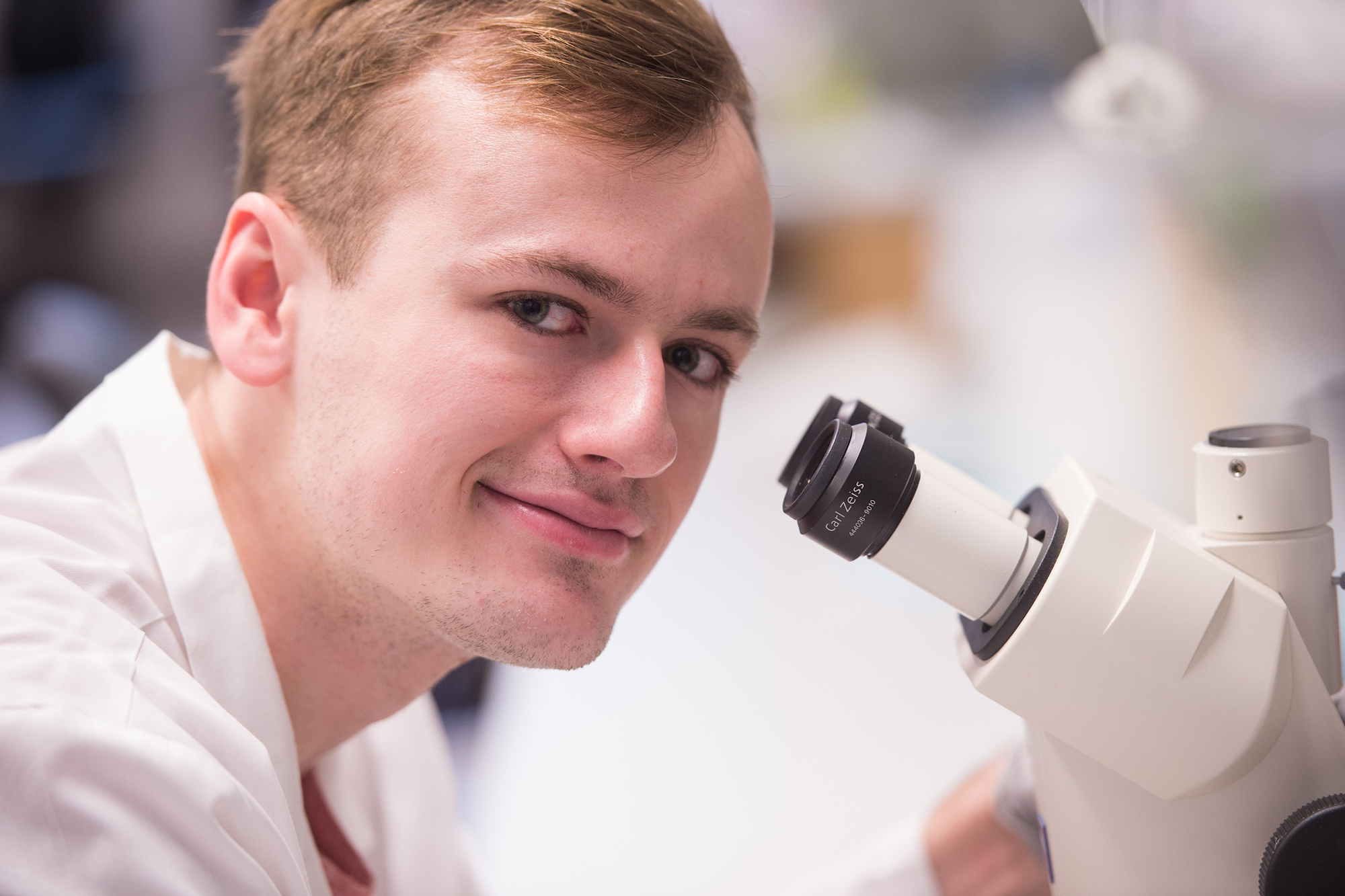
From a fairly young age, University of Iowa undergraduate Jesse Cochran wanted to be a doctor. The Newton, Iowa, native was curious about how the human body functions and how someday he could help people dealing with various afflictions. What Cochran didn’t realize all those years ago is that the job titles of physician and researcher are not mutually exclusive.
Now, he plans to be both of those things.
“I never really thought that I would end up as a scientist or researcher,” says Cochran, who in May received a degree in biology, chemistry, and biochemistry. “That’s been a fairly recent development, which largely can be attributed to my research experiences at Iowa.”
Cochran performed research in the E. Dale Abel lab group, with a specific focus on heart disease, metabolism, and endocrinology. “Every day, 2,300 American lives are lost due to cardiovascular disease. My family has had a long history of heart failure,” Cochran says. “My work hopes to elucidate the molecular underpinnings of this disease and to develop treatment strategies for these models.”
Conducting research has taught Cochran how to approach very complex and intricate problems: he breaks them down into simpler concepts and components. “From this reductionist view, I’m able to parse through the mechanisms leading to each component and then synthesize each section to obtain a more holistic perspective,” he says.
“The wonderful part about the University of Iowa is the bountiful opportunities that it hosts. Reflecting on my research experience as a whole, I always find myself saying, ‘Wow, this is cool. I’m discovering this novel information that I can share with the rest of the world, helping advance society.’”
Cochran’s discoveries in Abel’s lab weren’t limited to what he sees at a molecular level. He watched Abel perform a wide range of obligations—writing grants, executing his departmental chair duties, and mentoring numerous postdocs, grad students, and undergrads—and saw a model to emulate in his own career.
“At some point in all of our lives, we meet someone who revolutionizes our perception of what it means to be a professional. Dr. Abel was that person for me,” Cochran says. “Despite his many obligations, Dr. Abel always finds a way to accommodate others’ requests—a new collaboration, interviews, and so on. It’s truly breathtaking to watch him accomplish all these feats.”
The admiration is mutual.
“Jesse is a very quick learner and asks many questions when introduced to new concepts. Importantly, he not only asks about ‘what to do’ but also ‘why to do’ when it comes to experiments,” Abel says. “He is passionate about discovery and impressively has taken ownership of his project in a way that I would expect from a graduate student. Moreover, we have been very impressed by his strong critical-thinking skills and his clear curiosity to delve deeply into the literature surrounding his project.
“His drive is never quenched by mere data collection, motivating him to further analyze the data, discuss the interpretations that stem therefrom, and draw his own conclusions.”
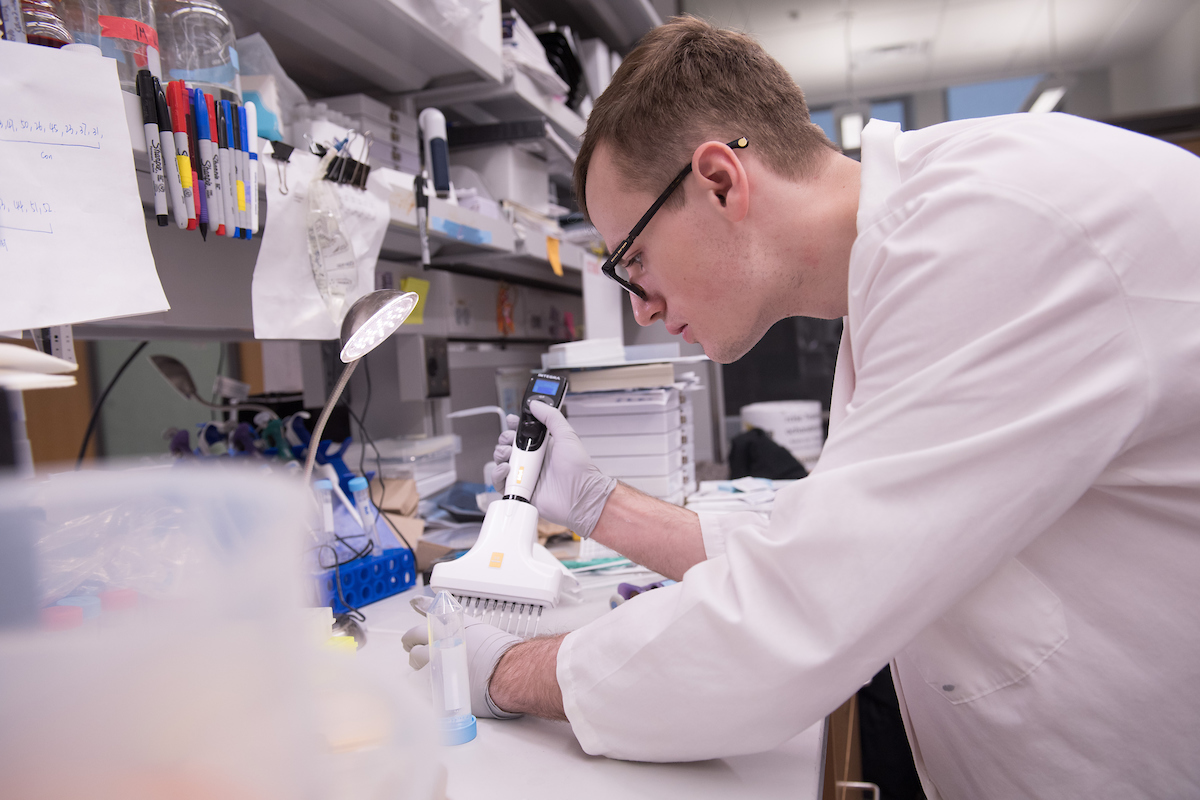
Abel says Cochran has thrived under the tutelage of mentor Yuan Zhang, a junior faculty member in Abel’s lab.
“Jesse quickly learned how to perform numerous laboratory techniques that rapidly enabled him to conduct experiments independently,” Abel says. “In return, his contributions have been integral in the success of Dr. Zhang’s project.”
Cochran will obtain a first-author publication from his work and gain co-authorship on other manuscripts. “In my years mentoring more than 130 undergraduates, only about 10 have submitted abstracts to national meetings, as opposed to university student research meetings, which they all do,” Abel says. “Jesse has submitted and presented his work at an impressive 13 local, regional, and international meetings.”
Jesse Cochran is one of of 13 undergraduate students featured in the University of Iowa’s Dare to Discover campaign highlighting researchers across campus.
Cochran came to the University of Iowa having satisfied his general education requirements, which he saw as an opportunity to explore much more of what the UI has to offer. Along with working in the lab and pursuing three majors to learn as much as he could about science, he made a list of clubs and organizations he found interesting and dabbled with them throughout his time at Iowa.
“I think the organizations that I’ve enjoyed the most were ICRU (the Iowa Center for Research by Undergraduates) and the Latham Science Engagement Fellowship Program; however, I also really enjoyed tutoring,” Cochran says. “The most surprising was definitely Dance Marathon. It has a very unique culture to it that you don’t see in many student organizations.”
(Editor’s note: If you want to know more about Dance Marathon, we have that story on another page.)
No matter one’s areas of interest, Cochran suggests that research is worth exploring.
“The wonderful part about the University of Iowa is the bountiful opportunities that it hosts,” says Cochran, whose post-commencement plans include applying to MD/PhD programs and eventually splitting time between practicing medicine and running a lab devoted to understanding cardiovascular disease. “Reflecting on my research experience as a whole, I always find myself saying, ‘Wow, this is cool. I’m discovering this novel information that I can share with the rest of the world, helping advance society.’”
